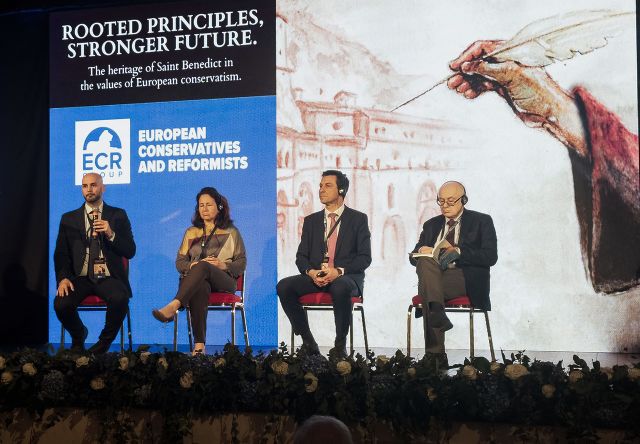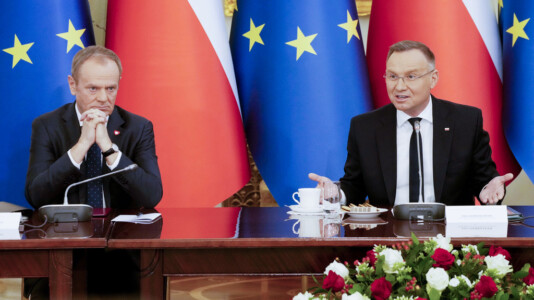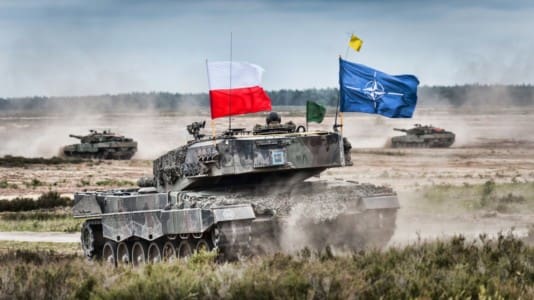“Rooted Rules, Stronger Future – The Legacy of Saint Benedict in the Values of European Conservatism” is the theme of a two-day conference organized by the European Conservatives and Reformists Group (ECR) in Subiaco, Italy.
Legislators reaffirmed their commitment to the core principles of the party’s activity by signing a so-called charter of values. Polish Law and Justice (PiS) party MEP Professor Zdzisław Krasnodębski remarked that “tradition is not about worshipping the ashes but about preserving the fire. We must win the cultural battle to win the political battle.”
The ECR MEPs discussed the fundamental values of their political family during the conference in Subiaco, highlighting the pivotal role of Saint Benedict in preserving classical tradition through its decline, ensuring its transmission to future generations, and reviving the cultivation of knowledge.
They noted how Saint Benedict advised monks to combine prayer with work, turning Benedictine monasteries into significant educational centers that played a crucial role in the resurgence of a linguistically, ethnically, and culturally united Europe. The current suppression of this culture by various “woke” ideologies was also addressed.
In this context, the ECR group convened the conference to “reaffirm the importance of preserving the basic values that characterize European thought.”
“Our goal here is to rewrite our constitution in terms of values so that by the time of the European Parliament elections (June 6-9), people will know who European conservatives are and what they want from the future of the EU,” said Nicola Procaccini, MEP of the Brothers of Italy (Fratelli d’Italia) party.
“We, as conservatives, want to protect the classical values and Judeo-Christian roots that are pivotal to the future EU. Forgetting our past, as demanded by the mainstream ‘cancel culture,’ endangers our future,” he added.
The charter “Benedictine Vision: A Charter of Conservative Values,” was signed by Nicola Procaccini, who is the co-chair of ECR, on behalf of the conservative group in the European Parliament, following the earlier “Prague Declaration” as the basis of ECR’s actions.
The charter outlines 12 points, emphasizing Europe as primarily a historical and cultural idea, the importance of cooperation while preserving cultural and historical identities and national sovereignty, and advocating for a society that not only thrives economically but also upholds timeless values contributing to our moral strength and resilience.






